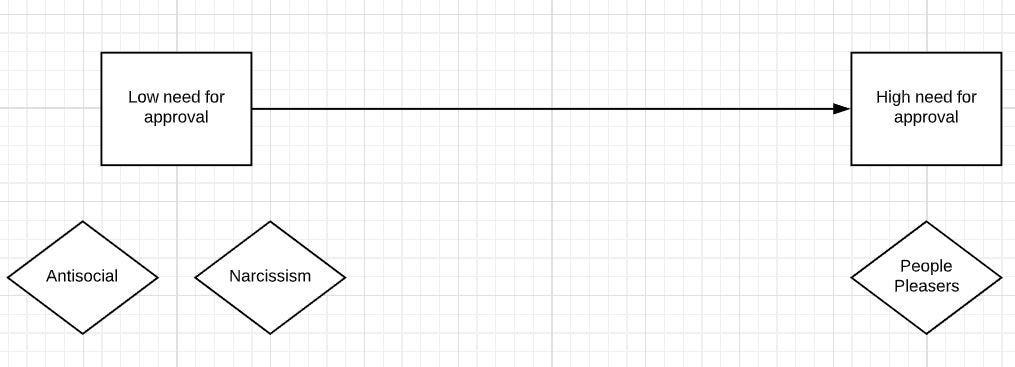Worrying about how people react or forming opinions based on the reaction are caused as a result of the need for external validation. It is easy to say that external validation isn’t important and that it is more important to be content with who you are. However, external validation is an ingrained concept that cannot be overcome by a few words of encouragement alone.
Manifestation
External validation is a learned concept that starts growing in individuals from a young age. Ever since we are kids, we are tasked with completing every step of the way. From kindergarten, our self-worth is measured based on our ability to perform and is distilled down to mere numbers on a report card. It doesn’t matter if you are a good person, the only thing that we are taught to acknowledge is the ability of an individual to perform according to a set standard of assessment. This develops a need for external validation.
Kids don’t grow up in this environment wanting to be content with themselves or be appreciative of their efforts. They grow up knowing that they weren’t good enough. Such an environment breeds a sense of internal struggle fueled by external validation.
Growth
It is quite common to hear young adults aged between 20 to 30 years proclaiming that they are going through an existential crisis. However, existential crisis grows in people from a young age. Since our entire self-worth and self-esteem is based around constant rejection and invalidation. It is only around the age of young adulthood, do individuals understand that what they are experiencing is an existential crisis.
Repercussion
Constant invalidation leads to the development of coping mechanisms to combat this need for approval. The need for approval is a spectrum and depending on where an individual falls determine their behavior and personality.
It is important to note that this spectrum is not validated (pun unintended) nor does it fully explain the development of specific personality traits and behavior. It is also important to note that some individuals naturally have a low need for approval and don’t have a specific coping mechanism. The sketch given below is in cases for individuals who have developed coping mechanisms having grown up with external validation.

The spectrum of approval is developed as a result of growing up in a validation-dependent environment. People who fall under the low need for approval as a way to cope tend to display antisocial behavior. In some instances, this complete disregard for others and solely caring about themselves alone tends to develop as narcissism and the need for power and recognition of self over approval.
On the other end of the spectrum, the need for high approval is displayed in people who look to please other people at all times. They have an inability to say no and value their life based on other people’s opinion of them. They tend to form opinions and viewpoints based on what is popular and what helps them gain reputation.
Healing
It is a difficult proposition to overcome the scarring that external validation inflicts on individuals. The inability to self assess and estimate the capabilities of the self are key problems that individuals fail to overcome. However, external validation is a learned concept and can be unlearned through rigorous effort.
A starting point for healing is going back to the basics since that is where all of this started. Art is a significant booster of self-worth and is also available in different forms. Start out slowly, learn a chord, draw a mountain, sing a verse, write a paragraph, act out a line, click a picture, make an egg, hammer a nail, or do whatever that you wish to do.
Art has no boundaries and it can help in overcoming the need for validation. It is, however, important to note that you may not be the best at it from the get-go or a prodigy waiting to discover his or her or their talent. Masterpieces take time and you should give yourself that time.
The need for feedback and approval is important and cannot be disregarded but it is important to share with an empathetic audience who understands why you are doing what you are doing. And slowly but surely you will start to self-assess and learn the ability to estimate yourself. And over time your perspective of yourself will outweigh the need for external validation.


